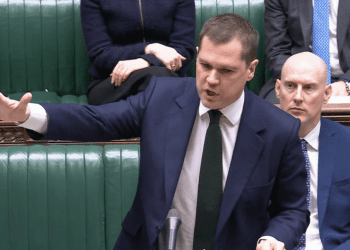In recent weeks, Labour has made a number of significant announcements to back the nuclear industry. But if Labour wants a British nuclear renaissance, they need to go a lot further than just throwing money at nuclear projects, especially when it comes to streamlining red tape.
Unfortunately, it has been a repeated pattern of Ed Miliband to dither and delay when it comes to British nuclear. The year-long delay to the funding decision on Sizewell C and the watering down of the small modular reactor (SMR) competition show how low down on his priority list nuclear comes.
Britain has a reputation for putting off critical decisions on nuclear. For decades, we were at the forefront of nuclear innovation, but we took our foot off the gas — or rather, ironically, we had a dash for gas and left nuclear to decline. The share of our electricity generated by nuclear power has fallen from a high of 27% in the 1990s, down to around 15% today. France, by comparison, gets around 70% of its electricity from nuclear.
Now, the Conservatives are also not blame-free here — despite establishing Great British Nuclear and launching the SMR competition. It is certainly not all this Labour government’s fault. But they cannot escape the criticisms that they have slow-pedalled the renewal of our nuclear fleet.
We need to see urgency now in reaching a final investment decision on Sizewell C and commissioning Rolls Royce to get building SMRs. If Labour continues with delays, they will simply cause costs to balloon, investment to be lost, and Britain to fall further behind other nations looking to capitalise on nuclear.
A major reason for the delays from this government has been its focus on the arbitrary target of achieving a clean power system by 2030. This means the long-term decisions that are needed to secure our energy supply and meet rising energy demand beyond 2030 were never a priority.
Additionally, rather than backing two companies in the SMR competition — as the Conservatives intended — Labour backed one. Frustratingly, this has left us in the same position we’d have been in if the government simply picked Rolls Royce ten years ago when we could have started building.
But after years of neglect, it is good to see the government take the next steps to build new nuclear. After all, nuclear will play an essential role in helping us shift our reliance away from gas, which has been responsible for a large part of the hikes in energy bills in recent years.
The cost of our electricity is set by the most expensive source needed to meet demand — in 2021, 97% of the time, this was gas. This heavy reliance on gas leaves us vulnerable to European price spikes, as we have seen over the past few years in our energy bills. In contrast, gas set the price only 7% of the time in France in 2021, as there’s usually enough power generated by nuclear to meet demand from that alone. As a result, France has significantly cheaper electricity.
Nuclear is more than just a secure energy source to power our economy. It is a sector full of economic potential in its own right. Over 60,000 jobs are currently supported by nuclear, with the Nuclear Industry Association estimating that 40% of this employment is in the most deprived 25% of local authorities in England. Jobs range from short-term construction roles, to long-term roles operating power stations. With a generating lifespan of over sixty years, there are cases where three generations of the same family could work in the same nuclear plant. Not many sectors these days are able to say this.
So it is right the government has invested to renew this proud sector. But after years of neglect, the industry needs a lot more than a cash injection. Labour cannot afford to dither and delay again on what the nuclear sector desperately needs — which is serious regulatory reform.
The sector is drowning in excessively cautious rules, making building new plants longer and more expensive than it needs to be. To fix some of these problems, we should recognise approved reactor designs from reputable regulators such as South Korea and France, avoiding costly and time-consuming design changes; reform habitat regulations to prevent more costly ‘fish disco’ scenarios, whereby overburdensome environmental mitigation measures such as those at Hinkley Point C add excessive costs; and grant regulatory justification for all new nuclear reactor designs, essentially cutting red tape by stating that the benefits will always outweigh the risks of new nuclear power in the UK.
Britain has pushed off decisions on nuclear for too long. It has hurt the sector and left it on its last legs. Without nuclear, we will be less energy secure in an increasingly dangerous world.
The Conservatives should be bold, hold the government to account on delivering these promised nuclear projects at pace, and pressure them to streamline red tape. And Labour needs to prove they have a serious plan to secure the nuclear sector’s long-term future in the UK beyond splashing the cash.
Politics.co.uk is the UK’s leading digital-only political website. Subscribe to our daily newsletter for all the latest news and analysis.
The post Labour can’t just throw money at nuclear and hope it works appeared first on Politics.co.uk.

































